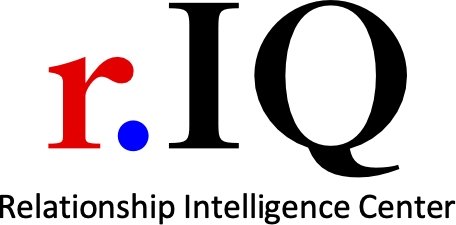What is Relationship Intelligence?
Relationship Intelligence is the ability to meet your needs by learning the lessons that conflict has been trying to teach you. Yes, you read that right. Conflict is the most valuable source for understanding and mastering the art of deep and lasting connection. In fact, it can be argued that without conflict, we never really get to know each other.
In moments of connection, we enjoy a natural state of balance and closeness. Vulnerability becomes our superpower that strengthens the bond, allowing us to be our true selves. In moments of disconnection, the experiences of distress and defensiveness take over, our minds fill with uncertainty, and volatility replaces vulnerability. Relationship Intelligence helps us identify and understand the life lessons that have been trying to teach us, which enables us to strengthen our relationships while improving self-mastery and well-being.
The core principle of Relationship Intelligence revolves around the simple truth that “we need each other.” Tightly fused by this organizing principle is the fact that relationships meet our most basic human needs. Relationships define who we are and how we perceive our surroundings and ourselves, give purpose and direction to our lives, and inform us where and to whom we belong. Simply stated, relationships make life worth living.
Relationship Intelligence was developed to help people effectively manage conflict, meet their needs, and experience improved trust, commitment, and intimacy in the relationships that matter most.
David Zierk, PsyD
Licensed Clinical Psychologist
There is only one thing that we all need that we can’t give to ourselves, and that is connection.
As humans, we share three things in common:
We are all, more or less, insecure & selfish
To alleviate our insecurity and become less selfish, we need to belong, to be a part of something bigger than ourselves, to be accepted and respected
To grow and develop, we need each other
These findings serve as the basic building blocks for the concept of “relationship intelligence.” Knowing what we need is the first step. The second step is to learn how to meet our needs. This process involves understanding that our responsibility is to teach others how to love us. In turn, we find it in our hearts to learn how to love another person.
As the founder of r.IQ: Relationship Intelligence Center, Dr. Zierk is committed to helping people understand the importance of not doing life alone and learning how to move toward others by choosing to be vulnerable, build trust, speak the “deep truth,” and understand the resolute strength associated with commitment and intimacy.
David W. Zierk is a licensed clinical psychologist in the state of Colorado specializing in forensic psychological, trauma assessments, neuropsychological, and vocational assessment of individuals dealing with difficult circumstances (e.g., high conflict divorce, medical malpractice, workers’ compensation, personal injury, ADHD, LD, neurological disorder, head trauma) as well as providing focused, time-limited, empirically-supported therapy with individuals dealing with “unsolvable” problems. Dr. Zierk addresses issues involving connection, communication, conflict resolution, intimacy, problem-solving, anger management, mood management, and chronic pain recovery.
Dr. Zierk has over thirty years of experience working with individuals who have suffered catastrophic and unremitting injuries with permanent and life-altering consequences. He is an expert in vocational evaluations and has provided expert testimony in hundreds of personal injury and work-related injuries, as well as matters involving divorce and complex life situations. Dr. Zierk is also trained in neuropsychology and has worked in several hospitals and primary care settings, gaining expertise in the complex behavioral health system.
For more information, visit davidzierk.com
Education
UNIVERSITY OF DENVER, GRADUATE SCHOOL OF PROFESSIONAL PSYCHOLOGY
Doctorate of Clinical Psychology, 2005
UNIVERSITY OF DENVER
Masters of Arts in Clinical Psychology, 2002
UNIVERSITY OF COLORADO
Masters of Arts in Counseling Psychology, 1985
Activities & Affiliations
• American Psychological Association
• American Psychotherapy Association
• Association of Family and Conciliation Courts
• National Academy of Neuropsychology


